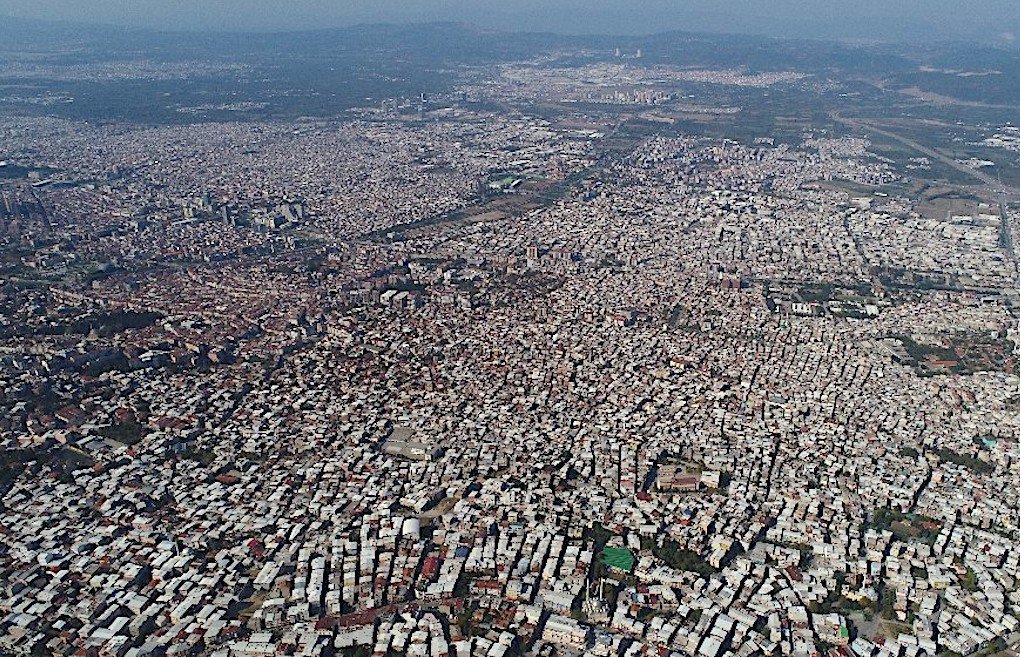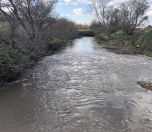* Bursa Plain / TMMOB
Click to read the article in Turkish
"Environmental pollution in Bursa leads to a dark picture for agricultural fields." This is how Murat Demir, an executive board member of the Association for the Protection of Nature and Environment (DOĞADER) in Bursa, has summarized the industrial pollution in the city.
Speaking to Gülin Demir from local daily Bursa'da Bugün, Demir gives examples as to the collapse of agriculture due to industry.
Recalling that "a large part of the agricultural fields in Bursa are irrigated with the water drawn from the Nilüfer Brook", Demir has said, "Nilüfer Brook is no longer in the category of water. It is chemical waste".
Raising concerns that "heavy metals mix with the groundwater bodies", which is the second source of water for irrigation in agricultural fields in Bursa, Demir has explained that "as industry and industrial waste is all over Bursa, groundwater is no longer clean, either".
He has said, "As plants also have a respiratory system, they also have contact with the air. Air pollution and acid rains affect agricultural products, trees and fruits. Air pollution affects Bursa as a whole".
According to Murat Demir, "rubble is also illegally dumped in agricultural fields in Bursa, which negatively affects the fields".
Environmental pollution and climate crisis
Speaking further about the issue, Demir has noted that environmental pollution, coupled with the consequences of the climate crisis, decreases the quality of the soil: "The precipitation regime has also changed as a result of the climate crisis. For instance, an area receives so much rainfall in a day that it is normally supposed to receive it in three weeks".
Demir has explained that these changes in the precipitation regime have led to erosion and salinization in the region.
Recalling that temperatures may rise in winter due to the climate crisis, leading the fruit trees to emerge from hibernation prematurely, Demir has raised concerns that the trees are negatively affected when the winter conditions return two weeks later, which affects the agricultural productivity negatively: "This has happened a lot with olives in the recent period".
Demir has noted that Bursa is marked by "industrial pressure, excessive population and unplanned urbanization", adding that "agricultural fields, industrial zones and residential areas are intertwined with one another": "There are agricultural fields, vineyards and gardens along the highways". And the result: "The pollution on the highway and the pollution caused by the vehicles' emissions are absorbed by fruits and vegetables".
'There is no longer a Bursa Plain'
According to Demir, the unlicensed factories in Bursa operate with an outdated technology, which causes the waste to be uncontrolled: "All streams flowing around Bursa are polluted with industrial waste".
Recalling that "houses are built in agricultural fields and zoning amnesty is granted 3-5 years later", Demir has emphasized that such practices need to be prevented: "There are huge factories in places registered as barns. They are operating without a license or control".
Demir has noted that the only way out of this picture is to abide by the city plan scale 1/100000 and called on the city to do it:
"Bursa is unfortunately no longer loyal to this plan. Areas that need to be protected such as agricultural fields and forest lands may be classified differently with plan changes. It needs to be protected by law.
"We can no longer talk about a plain called Bursa Plain. Bursa Plain is in agony and this is a very serious environmental problem". (AEK/SD)





as.jpg)
